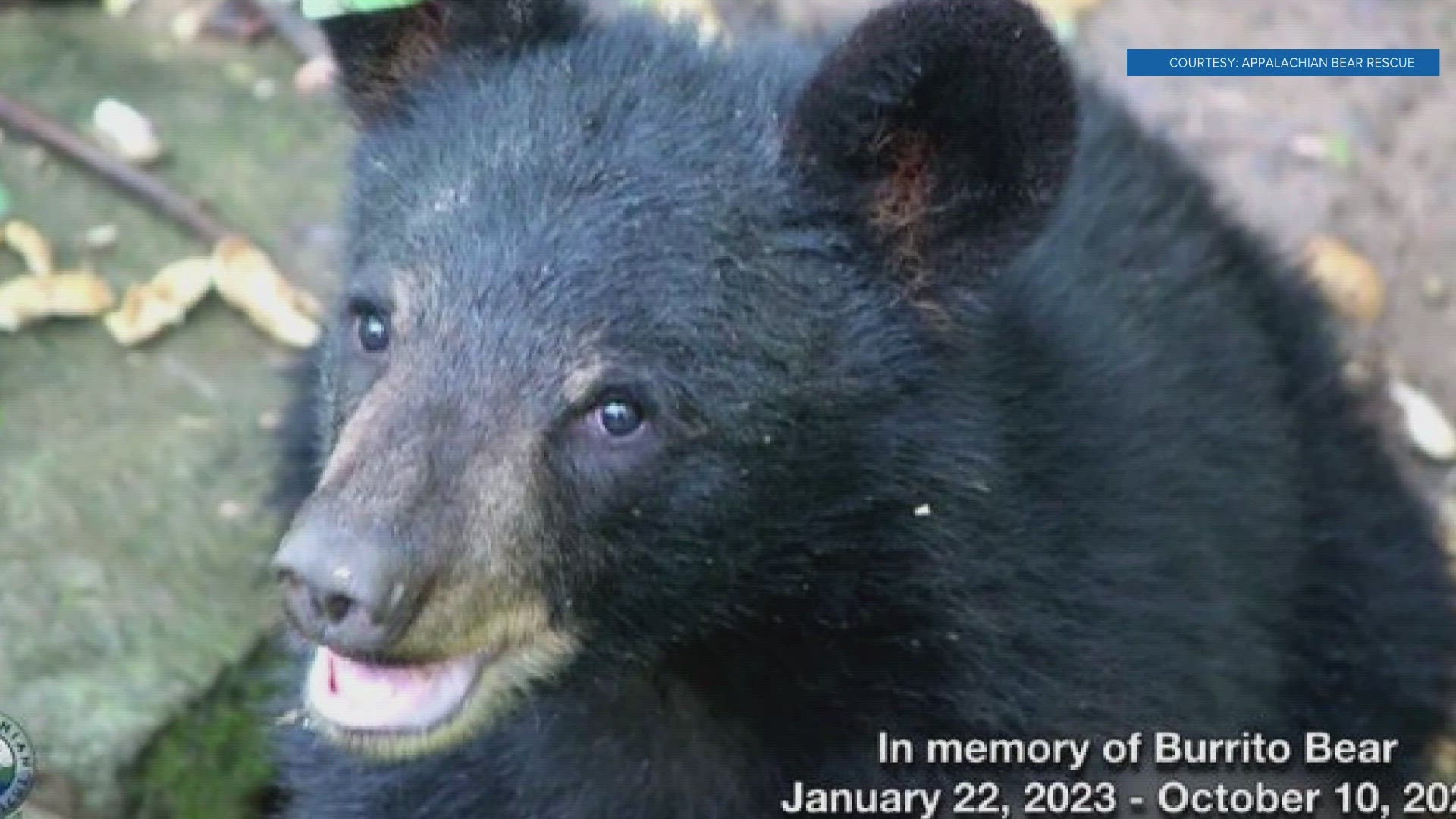TOWNSEND, Tenn. — On Wednesday, the Appalachian Bear Rescue hosted an online livestream to discuss the deaths of three bear cubs. Thumper Bear, Burrito and Flapjack all died of the same infection.
The nonprofit said veterinarians with the University of Tennessee College of Veterinary Medicine were investigating a strain of Streptococcus bacteria that could have been the cause. ABR said the doctors had tested for coronavirus and distemper virus, and said previous cubs that died did not have evidence of viral pneumonia, indicating that the cause was likely bacterial.
The Tennessee Wildlife Resources Agency also released a statement on Thumper Bear's death. In it, they said a bear could have been exposed to a highly contagious strain of bacteria from poultry, chicken litter or wild birds before arriving at ABR.
ABR specified the bacteria is different from strains that cause Strep Throat in humans, and also said ABR did not have chickens on the property in at least 27 years. They also said bears haven't been fed with eggs or anything similar. They believe a bear may have been exposed to the bacteria before being brought to the nonprofit and all the cubs were exposed to it over time.
"Tons of people are working, they literally have worked around the clock," said Dana Dodd, who participated in the live stream. "It was really, really good when we finally knew."
She said that after Flapjack died, ABR took all five of the other bears that were in the same enclosure to UTCVM for extensive exams. They found all five were infected and had some degree of pneumonia, and some seemed to have fewer symptoms than others.
"But at the end of the day, all of the five remaining bears in that enclosure, all of them had severe pneumonia. And if they were dogs, which they're definitely not, but if they were dogs they would keep each of the bears back then in ICU, in the hospital," said Dodd. "Wo we, without knowing exactly what was causing the pneumonia at the time, we set about caring for them."
They said while Burrito died from the illness, the bear cub's sibling, Tamale, recovered from the illness. Dodd also said Thumper Bear had difficulty taking antibiotics.
"By then, we knew it was a bacterial infection. And we knew that it was a deadly bacterial infection and that you absolutely had to take your antibiotics," said Dodd. "We're treating as best we can, we realize that we have to get antibiotics into them. But it simply isn't as easy as holding a pet down and getting medicine in them if they don't want to take it."
ABR ended up moving Thumper Bear from the enclosure, and veterinarians moved the cub into an enclosure with Tamale so he would not be alone. But ABR said the infection had likely moved into his bloodstream and may have impacted the bear cub's heart.
Veterinarians are performing a necropsy on Thumper Bear to learn more about how he died. However, ABR said it can take months for results to come back since the tests need to be sent outside of the University of Tennessee.
Dodd said Tamale is still healthy, and so are Martha, Washington and Betsy Ross. They have no sign of coughing, heavy breathing or wheezing, Dodd said.
"They've all been very good about taking antibiotics, every single bit of it every dose. And we hope and that hope and we believe that they are past the worst and on the way to being well," Dodd said.

